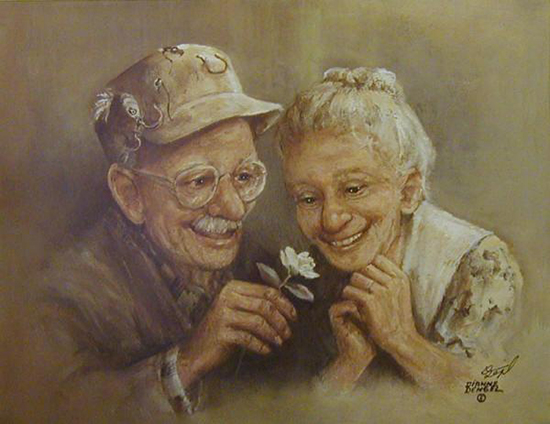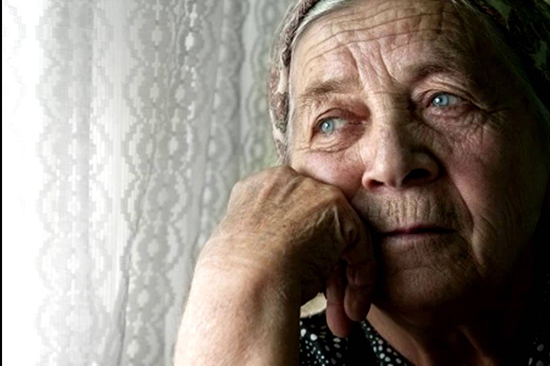درسنامه واژگان
آموزش رایگان زبان انگلیسی > دوره: دروس پایهی انگلیسی بدون تلاش / فصل: جشنواره روز مرگ / درس: درسنامه واژگانسرفصل های مهم
درسنامه واژگان
توضیح مختصر
در این درس آقای ای جی هوگ لغات مهم استفادهشده در درسنامهی اصلی را برای شما بهطور مفصل توضیح میدهد.
- سطح سخت
دانلود اپلیکیشن «زبانشناس»
فایل صوتی
متن انگلیسی درس
Day of The Dead - Vocabulary Lesson
Okay, This is the vocabulary for day of the dead.
So the day of the dead, I arrive in Guatemala. On the day of the dead, November first.
I’m curious about this holiday. Holiday is the normal word we use for a festival. Some people say festival, but holiday is more common. Christmas is a holiday. Halloween is a holiday.

So holiday is common word. The most common word we use.
OK. So I say I’m curious about this holiday. So I go to the cemetery.
Cemetery is a place for dead people. Many, many dead people in a cemetery so that’s what a cemetery is. Right? A place for dead people… cemetery… It’s a large area usually large place… Cemetery.

Okay, the next paragraph, I say, The atmosphere is like a party. Here “atmosphere” means the, the general feeling of a place.
For example: I might say, this house has a happy atmosphere…right? it means the place has a happy feeling. Maybe it’s very warm, maybe a lot of nice people there… many reasons, but atmosphere means the feeling of a place… A place… The atmosphere.
So the cemetery had an atmosphere of feeling like a party. Many people everywhere and people were sitting around the graves of their dead ancestors.
A grave, a grave is a place where one dead person is buried.

Right? One dead person is in a grave.
One dead body in a grave. Many graves in a cemetery, right? So a cemetery has many many graves. So each grave has one body and then many graves in a cemetery.
Okay, they’re sitting around the graves of their dead ancestors. An ancestor… Ancestor is a person who comes before you and your family.
For example: Your grandfather or grandmother is an ancestor or your great grandmother is an ancestor.

So all the people in your family older than you, Y’know, who came before you. These people are your ancestors… Ancestors… Ancestors… We say errs… Ancestors.
Okay, They clean the graves and add fresh flowers. The families clean the graves and I walk around through the cemetery and I admire… I appreciate… I like… I admire the beauty of all the colorful flowers.
There’s also color in the sky. because many kids… Kids means children, so many children, Many kids are flying kites.

Kites are paper or plastic with a string and you fly them in the wind. Usually children fly kites. So it’s Kites.
Some families are having a Picnic next to the graves.
Picnic is when you eat outside. Right? You eat outside with many people, That is a Picnic… a Picnic.

Okay, The people, they eat, Drink and chat together. Then they laugh and they smile. This is different than the United States. In the United States cemeteries are always somber.
Somber means very serious… Serious… Somber. Serious and not fun. Right? Serious and not fun. Somber… Somber… So in America, in the United States, cemeteries are somber. They are somber… very serious… Not fun…Somber.

And we certainly we never have festivals or parties next to graves. We don’t laugh or play music or fly kites in cemeteries either.
Okay then I say, I find that I prefer the Guatemalan approach. I find that… here find means realize, I realize that I prefer the Guatemalan approach. I find… I realize… I find that I prefer. I realize that I prefer. I understand that I prefer.

Okay so here find has a different meaning than normal. A little bit.
So I find that I prefer the Guatemalan approach…approach… here approach means way. Okay? I prefer the Guatemalan way. The Guatemalan method. I prefer the Guatemalan way. I prefer the Guatemalan approach. Okay…
I like the way they remember and celebrate those who have passed away… Passed away. To pass away means to die. It’s very polite… Very polite and very soft way to say die. If someone… someone’s mother dies, you can say I’m sorry your mother passed away. I’m sorry your mom passed away. I’m sorry she died. I’m sorry she passed away… Passed away is softer and more polite.

Okay. Next sentence, I say I like that they acknowledge death. Acknowledge means to recognize… To see and recognize.

Instead of denying it… Denying is the opposite of acknowledge. Deny means avoid… To say no to something… To avoid something is to deny it.

To deny it… The opposite of deny is acknowledge… Acknowledge and deny… Opposites.
Okay. So they don’t deny death, the way Americans do. I like that there is life as well as death in their cemeteries. Guatemalans call it the day of the dead but it’s also a day to appreciate life. Appreciate means celebrate… to understand and like something… So to appreciate.

Okay. That is all of the vocabulary. Listen to the vocabulary lesson a few times.
Read the text several times. Listen to the audio article a few times and then, finally listen to the mini story, many, many times… A lot, every day… okay.
ترجمهی درس
روز مرگ - درس واژگان
خب، این درس واژگان برای روز مرگ است.
روز مرگ، من به گواتمالا رسیدم. در روز مرگ، یکم نوامبر.
من دربارهی این روز تعطیل کنجکاو هستم. holiday واژهای معمولی است که برای یک فستیوال استفاده میکنیم. بعضی از مردم میگویند فستیوال، ولی holiday رایجتر است. کریسمس holiday است. هالووین holiday است.

پس holiday واژهای رایج است. رایجترین واژهای که استفاده میکنیم.
خب. میگویم من دربارهی این روز تعطیل کنجکاو هستم. پس به قبرستان میروم.
قبرستان جایی برای افراد مرده است. افراد مردهی خیلی خیلی زیادی در قبرستان هستند پس قبرستان این است. درسته؟ جایی برای افراد مرده… گورستان… منطقهای بزرگ معمولاً جایی بزرگ… قبرستان.

خب، پاراگراف بعدی، میگویم که، جَو مثل مهمانی است. اینجا «جَو» بهمعنای احساس کلیِ جاییست.
برای مثال: ممکن است من بگویم، این خانه جَو شادی دارد…درسته؟ یعنی آنجا احساس شادی دارد. شاید خیلی گرم است، شاید افراد خوب زیادی آنجا هستند… دلایل زیادی هست، اما جَو یعنی احساسی که جایی دارد… یک جا… جَو.
پس قبرستان جَوی مانند مهمانی داشت. افراد زیادی همهجا بودند و مردم دور قبرهای اجداد مردهشان نشسته بودند. قبر، قبر جایی است که آدم مرده دفن شدهاست.

درسته؟ یک آدم مرده در یک قبر است.
جسدی در قبر. قبرهای زیادی در قبرستان هستند، درسته؟ پس قبرستان قبرهای خیلی خیلی زیادی دارد. پس هر قبر یک جسد دارد و قبرهای زیادی در قبرستان هستند.
خب، آنها دور قبرهای اجدادشان نشستهاند. an ancestor… جد فردی است که قبل از شما و خانوادهتان بوده.
برای مثال: پدربزرگ یا مادربزرگ شما جد هستند یا مادر مادربزرگ شما جد است.

پس تمام افراد پیرتر از شما در خانوادهی شما، میدانید، که قبل از شما بودند. این افراد اجداد شما هستند… اجداد… ancestors… میگوییم ــِرز… انسستِرز.
خب، آنها قبرها را تمیز میکنند و گلهای تمیز میگذارند. خانوادهها قبرها را تمیز میکنند و من در قبرستان راه میروم و میستایم… قدردانی میکنم… دوست دارم… زیبایی تمام گلهای رنگارنگ را میستایم.
در آسمان هم رنگ وجود دارد. چون بسیاری از بچهها… kids یعنی کودکان، تعداد زیادی از کودکان، بسیاری از بچهها دارند بادبادک هوا میکنند.

بادبادکها کاغذی یا پلاستیکی هستند با نخ و آنها را در باد هوا میکنید. معمولاً بچهها بادبادک هوا میکنند. پس بادبادکها.
بعضی خانوادهها کنار قبرها پیکنیک به راه انداختهاند.
پیکنیک وقتی است که شما بیرون غذا میخورید. درسته؟ بیرون با افراد زیادی غذا میخورید، این پیکنیک است… پیکنیک.

خب، مردم، میخورند، مینوشند و با همدیگر حرف میزنند. بعد میخندند و لبخند میزنند. این با ایالات متحده متفاوت است. در ایالات متحده قبرستانها همیشه غمآلود هستند.
somber یعنی خیلی جدی… جدی… غمآلود. جدی و غیرسرگرمکننده. درسته؟ جدی و غیرسرگرمکننده. somber… غمآلود… پس در آمریکا، در ایالات متحده، قبرستانها غمآلود هستند. آنها غمآلود هستند… خیلی جدی… غیرسرگرمکننده… غمآلود.

و ما قطعاً هیچگاه کنار قبرها فستیوال یا مهمانی نداریم. ما همچنین در قبرستانها نمیخندیم یا موسیقی نمینوازیم یا بادبادک هوا نمیکنیم.
خب بعد میگویم که، من مییابم که نگرش گواتمالایی را ترجیح میدهم. من مییابم… اینجا find یعنی متوجه شدن، من متوجه میشوم که نگرش گواتمالایی را ترجیح میدهم. من مییابم… من متوجه میشوم… من مییابم که ترجیح میدهم. من متوجه میشوم که ترجیح میدهم. من میفهمم که ترجیح میدهم.

خب پس اینجا یافتن با حالت عادی معنی متفاوتی دارد. خیلی کم.
پس من مییابم که نگرش گواتمالایی را ترجیح میدهم… نگرش… اینجا approach بهمعنی روش است. خب؟ من روش گواتمالایی را ترجیح میدهم. شیوهی گواتمالایی. من روش گواتمالایی را ترجیح میدهم. من نگرش گواتمالایی را ترجیح میدهم. خب…
من روش آنها برای بهیادآوری و تجلیل کردن آنهایی که از دنیا رفتهاند را میپسندم. از دنیا رفتهاند… از دنیا رفتن یعنی مردن. خیلی مؤدبانه است… روشی خیلی مؤدبانه و نرم که بگوییم مُرد. اگر کسی… مادر کسی بمیرد، میتوانید بگویید متأسفم که مادرت از دنیا رفت. متأسفم که مادرت از دنیا رفت. متأسفم که مُرد. متأسفم که از دنیا رفت… از دنیا رفت نرمتر و مؤدبانهتر است.

خب. جملهی بعدی، میگویم که آنها مرگ را قبول میکنند. acknowledge یعنی تصدیق کردن… دیدن و تصدیق کردن.

بهجای رد کردن آن… denying مخالف acknowledge است. deny یعنی خودداری کردن… نه گفتن به چیزی… خودداری کردن از چیزی یعنی رد کردن آن.

رد کردن آن… deny مخالف acknowledge است… قبول کردن و رد کردن… مخالف هم.
خب. پس آنها مرگ را رد نمیکنند، جوری که آمریکاییها رد میکنند. من اینکه در قبرستانهایشان هم زندگی وجود دارد و هم مرگ را دوست دارم. گواتمالاییها به آن روز مرگ میگویند اما همچنین روزی است که از زندگی قدردانی میکنند. قدردانی کردن یعنی جشن گرفتن… فهمیدن و دوست داشتن چیزی… پس قدردانی کردن.

خب. این تمام واژگان بود. به واژگان درس چند بار گوش دهید.
متن را چند بار بخوانید. به صوت مقاله چند بار گوش دهید و بعد، در نهایت به داستان کوتاه، دفعات خیلی خیلی زیادی گوش دهید. خیلی، هر روز… خب.
